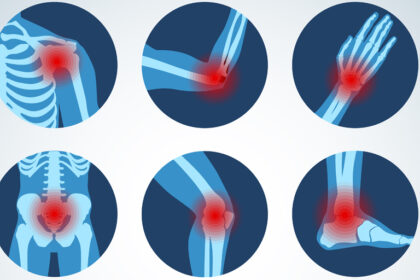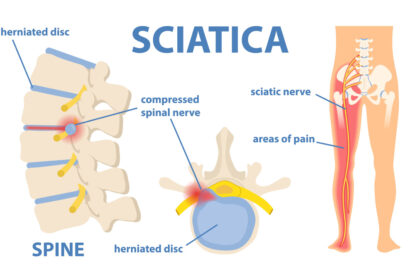In today’s digital age, reading a physical book might seem antiquated. With endless entertainment and information available instantly on our phones and tablets, who has time to sit down and read an old-fashioned printed book?
However, scientific research shows that reading print books provides significant cognitive benefits that can’t be replicated by scrolling through e-readers. Reading printed material may be a lost art, but cracking open a book could be just what our brains need.
This article explores seven science-backed advantages that printed books offer for learning, mental enrichment, and boosting brainpower. As screens consume more of our time, making room for reading paper books could enhance focus, comprehension, imagination, empathy, and even intelligence. While e-readers are invaluable for travel and convenience, nothing compares to the immersive experience and neurological benefits of diving into a compelling paperback.
Modern technology has led to declines in attention span, analytical thinking, and the ability to read deeply. But reading printed books trains the brain in ways that online reading fails to match.
The tactile experience of holding a book, turning physical pages, and taking notes engages more of the senses. This leads to increased information retention and a more profound, meaningful reading experience. Scientists have found reading print books boosts connectivity in the left temporal cortex of the brain – the area associated with language and memory.
Reading a paper book also encourages transportation into the story – a state of immersive focus that elevates reading from glancing at words to being fully absorbed in a fictional world. This transportation effect is more pronounced and meaningful with print books compared to screens.
While screens encourage skimming, books spark deeper thinking, reflection, and mental visualization. Basically, losing yourself in a good book is scientifically proven to benefit the brain.
As screens consume increasing amounts of leisure time and attention, making room for reading printed books has quantifiable cognitive benefits. Read on to learn why taking time to enjoy the lost art of reading physical books can boost brainpower, comprehension, focus, and imagination. The science shows cracking open a paperback novel is far from antiquated – it may be just what our minds need.
7 Scientific Benefits of Reading Printed Books
1. You absorb more information.
Readers of print books absorb and remember more of the plot than readers of e-books do, according to a study that was presented in Italy in 2014. In an earlier study, print readers also scored higher in other areas, such as empathy, immersion in the book, and understanding of the narrative. Scientists believe this effect is related to the tactile sensation of holding a book in your hands.
2. They help children become better readers.
Another study of young children between the ages of three and five revealed that kids had lower comprehension of the story when their parents read to them from an e-book as opposed to a print book. Researchers theorize this arises because children get distracted by the electronic device and have a harder time focusing on the story itself.
3. They’re easier on the eyes.
Considering that many jobs require you to stare at a computer screen all day, it’s wise to give your eyes a break whenever you can. Electronic books can cause screen fatigue, which may lead to blurred vision, redness, dryness, and irritation. With print books, you don’t have to worry about any of that.
4. Reading physical books can help you sleep better.
When you’re winding down for the night, reading from a screen or scrolling through a social media app on your phone are bad ideas. Study after study has shown that the blue light from your screen can toy with your melatonin levels and circadian cycles, making it harder for you to fall asleep and making you feel groggier when you wake up.
5. You’re less likely to get distracted.
Perhaps unsurprisingly, people who read e-books tend to get sidetracked more easily, but not just because the internet is right at their fingertips. Digital readers tend to spend more time scanning for keywords than actually processing what they’re reading. And with a print book, there’s no chance of getting distracted by links or getting sucked down an internet rabbit hole.
6. Having a library at home is linked to higher academic achievement.
Students who have books at home are more likely to score higher on tests, according to a study of readers from 42 countries. It doesn’t matter how many books you have, but each additional book helps children perform better in school. This is especially true for children from disadvantaged families.
7. They amplify the joy of reading.
One recent study of college students in the U.S., Slovakia, Japan, and Germany showed that 92% of participants preferred actual books that they could hold and touch and leaf through whenever they wanted.
In Conclusion:
As the digital revolution continues to shape our world, the timeless act of reading printed books has undeniable cognitive benefits. While e-readers provide convenience and accessibility, science shows that reading physical books boosts brain connectivity, focus, imagination, empathy, and information retention in ways that screens can’t replicate. As daily life becomes increasingly driven by technology, making time for reading printed works trains our brains in invaluable ways.
Though they may seem antiquated, print books are far from obsolete. The lost art of sitting down to read a novel, textbook, or comic book remains important for intellectual growth and mental health. Turning paper pages, rather than endlessly swiping screens, transports us into rich fictional worlds and engages more of our senses. In a reality dominated by digital overload, cracking open a printed book is a scientific-backed way to boost brainpower while nourishing the soul.
So don’t underestimate the power of picking up an old-fashioned paperback. While e-readers have benefits, science confirms reading physical books is far from outdated. In fact, this lost art may be just what our minds need to thrive in the digital age. Whether curling up with a thriller or diving into the morning newspaper, printed works deserve a place in our technology-driven lives. Turning pages stimulates our cognition in irreplaceable ways. And that is a timeless message worth remembering.





